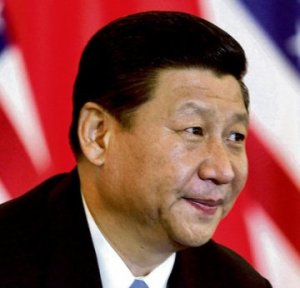Irish foreign policy has become so dominated by our EU membership and our aid programme it is rare that other significant global issues impinge on our thinking. The recent visit of Xi Jinping, put the issue of China centre stage. It was difficult to tell from the media salivating and all out love bombing however that there are critical foreign policy issues at stake here.
Ever since 1989 and the fall of the Berlin Wall the tectonic plates of the global order have been shifting, initially around the idea of the one super power with the first Iraqi war, now towards a new far east to west balance. The rise of the BRIC countries is a big story in terms of the world economy but politically it is the increasingly authoritarian Russia and the ever growing China that are the real issues. Just look at the “frozen conflicts” that Ireland has to deal with in the chair of the OSCE in every case Russia looms large.
The ongoing China question is how its massive economic power and reach will translate in to political muscle. The omens are not good. China is everywhere and increasingly with Russia frustrating natural concerns about global and regional security (think failed U.N. Resolutions on Syria). Similarly throughout the developing world Chinas role is not stopping at economic matters, several of the poorest countries are being inveigled in to the political influence of the power house of the east. This is of course to say nothing about the well publicised domestic human rights issues. Of course nobody knows if Chinas economy will continue to dominate and well researched fears of its property market are growing.
The U.S. has been having this debate for a while and it is clearly intertwined with its own self image and internal politics. President Obama and most recently Madeleine Albright have clearly asserted the U.S. is still the dominant world power and willing to play a role (a role people like Polly Tonybee have pointed out is extremely necessary for progressives globally). That is probably the case today but we might wonder how it will look in 20 years time.
So whither Ireland in the global debate about China. If we allow the IDA set foreign policy we don’t need to debate the issue any further and allied with the “we’re only a small country” narrative it would seem there is not a lot to say. Nobody suggests it easy for any country (including the U.S.) to grapple with this global dragon. However rather like belling the cat somebody needs to figure out a strategy. Governments of course have to work on trade issues and deliver jobs and growth for their people but at what price?
There is a formulaic approach that has been developed revolving around the line “we of course raised the issue of human rights in our meeting”. This of course does nothing in relation to the global questions. Europe and the U.S. in their transatlantic alliance have done a huge amount in the last century, it would be a shame if this alliance could not develop a better strategy on this key issue. The EU itself is a key actor and Ireland within the EU could take a lead. Nobody is talking about antagonistic positioning but rather developing a new language and approach. There is already a well developed EU/China partnership and this could form the arena for such debate.
Seeing China as merely a trade issue may bring short term economic gains but we cannot lose site of how our world political order looks in 20 years. We can only presume that our people will still want to see the values that Europe and the U.S. prioritised in the past present in our future.

Leave a comment